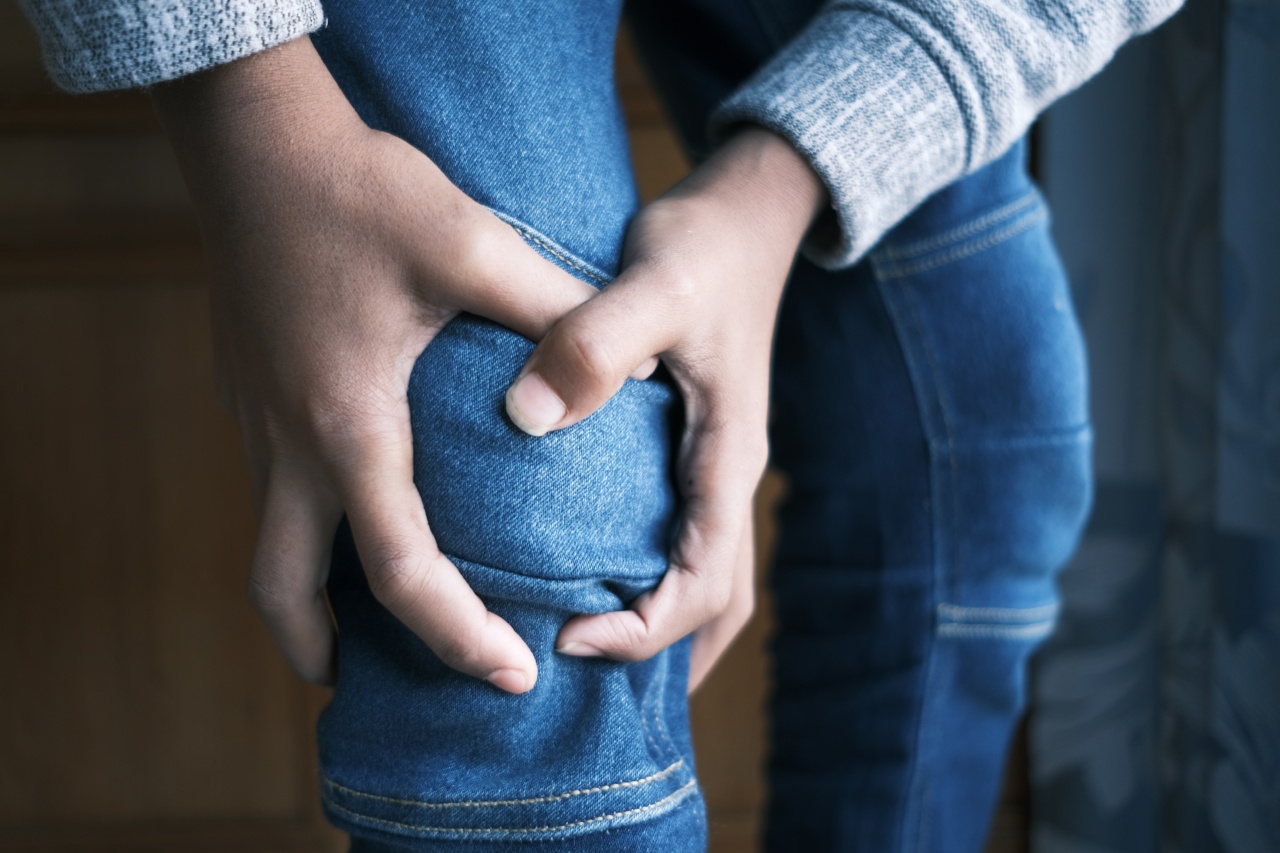Knee pain is a common problem that can affect people of all ages. While this type of pain can be caused by a number of factors, one of the most common causes is arthritis.
What is Arthritis?
Arthritis is a condition that affects the joints in the body. It can cause pain, stiffness, and swelling, and can make it difficult to move around or perform everyday activities.
Arthritis can affect any joint in the body, but it is most commonly found in the knees, hips, hands, and spine. There are several types of arthritis, including:.
Osteoarthritis
Osteoarthritis is the most common type of arthritis, affecting millions of people worldwide. It is caused by the breakdown of cartilage in the joints, which can lead to pain, stiffness, and loss of mobility.
Rheumatoid Arthritis
Rheumatoid arthritis is an autoimmune disorder that causes the immune system to attack the joints, leading to inflammation and swelling. Over time, this can cause damage to the joints and surrounding tissues.
Post-Traumatic Arthritis
Post-traumatic arthritis can occur after a joint injury, such as a fracture or dislocation. Over time, this can lead to cartilage damage and arthritis.
Other types of arthritis include psoriatic arthritis, gout, and infectious arthritis.
Knee Pain and Arthritis
Knee pain is one of the most common symptoms of arthritis. In fact, arthritis is the most common cause of knee pain in people over the age of 50.
Arthritis can cause pain and stiffness in the knee joint, making it difficult to bend or straighten the knee. Over time, arthritis can lead to damage to the joint, causing further pain and disability.
Other Causes of Knee Pain
While arthritis is a common cause of knee pain, there are several other factors that can contribute to knee pain, including:.
Injuries
Injuries to the knee, such as ligament sprains or meniscus tears, can cause pain and swelling in the knee joint.
Overuse
Overuse of the knee joint, such as during sports or repetitive activities, can cause knee pain and inflammation.
Obesity
Being overweight or obese can put extra pressure on the knee joint, leading to pain and stiffness.
Knee Pain Diagnosis and Treatment
If you are experiencing knee pain, it is important to seek medical attention.
A doctor or orthopedic specialist can perform a physical examination and order imaging tests, such as X-rays or MRI scans, to determine the underlying cause of your knee pain.
Treatment for knee pain will depend on the underlying cause. For arthritis, treatment options may include:.
- Medications to manage pain and inflammation
- Physical therapy to improve mobility and strength
- Injections to reduce inflammation
- Surgery, such as knee replacement or arthroscopy, in severe cases
For other causes of knee pain, treatment options may include rest, ice, compression, and elevation (RICE), physical therapy, or surgery.
Preventing Knee Pain
There are several things you can do to prevent knee pain, including:.
- Maintaining a healthy weight
- Wearing comfortable, supportive shoes
- Using proper form and equipment during exercise and sports
- Stretching and strengthening the muscles around the knee joint
Conclusion
Knee pain can be caused by a number of factors, including arthritis, injuries, and overuse. It is important to seek medical attention if you are experiencing knee pain, as early diagnosis and treatment can help prevent further damage and disability.




























